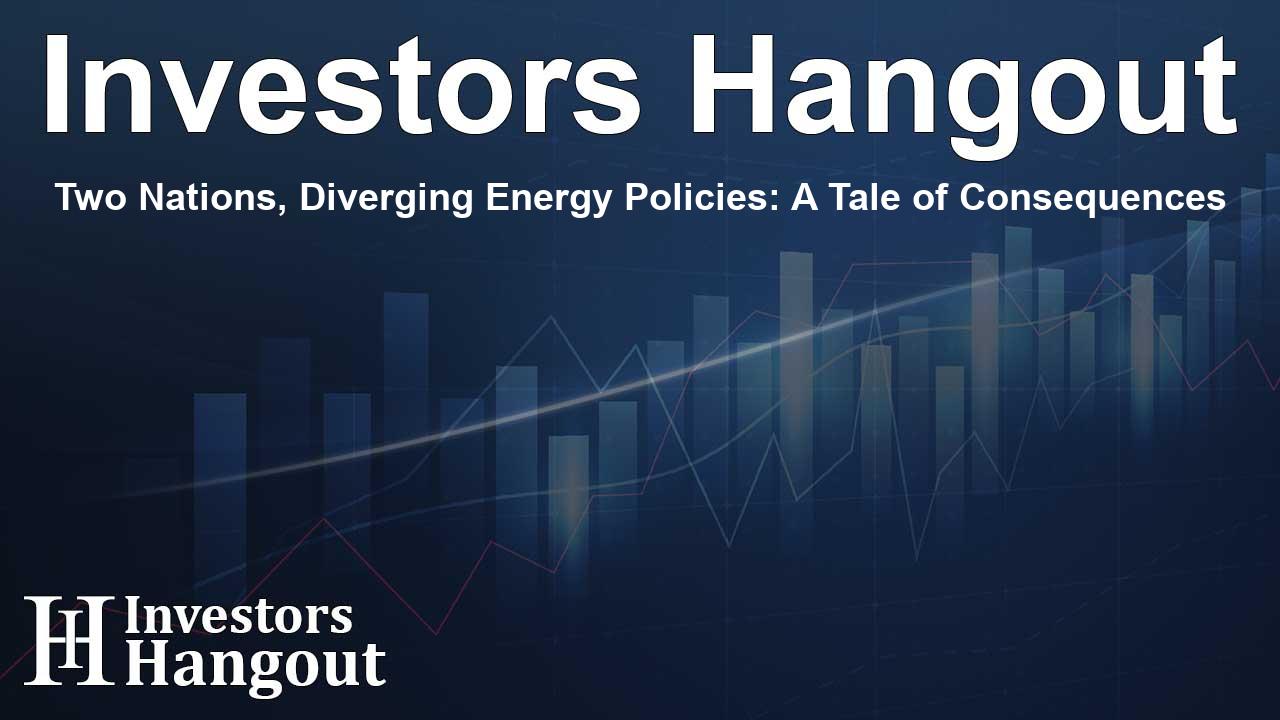Two Nations, Diverging Energy Policies: A Tale of Consequences

Contrasting Energy Policies: U.S. and Canada
In a bold move, President Trump has focused on energy security by canceling the subsidies for wind and solar energy that many believed distorted the energy market. This decision starkly contrasts with Canada's commitment to its Net Zero initiatives, which a prominent organization, Friends of Science Society, argues leads the nation toward economic challenges.
Net Zero Policies Under Scrutiny
According to a recent video explainer by retired energy economist Robert Lyman, the pursuit of Net Zero by Canada may result in dire outcomes. Friends of Science Society emphasizes that the stated goal is to combat the so-called climate emergency. However, the challenge lies in balancing economic stability with environmental policies, a task that is proving increasingly complex.
U.S. Executive Actions
Recently, President Trump issued an executive order halting the subsidies for wind and solar energy, representing a shift in the U.S. approach to energy. In stark contrast, Canadian officials seem to support their energy transitions, which some fear may undermine the nation's energy security.
The Perils of a Flawed Approach
As Friends of Science points out, recent discussions indicate a growing acknowledgment of potential risks associated with Canada's policies. In a conflicting domestic landscape, Canadian city officials advocate for creating an east-west power grid while shutting down pipelines. This duality raises questions about Canada's energy independence and economic future.
The Building Canada Act and Its Implications
Adding to the discourse, Canada recently enacted the "Building Canada Act," which aims to support large energy projects. One of the highlighted initiatives is the proposed offshore wind farm off the coast of Nova Scotia. Friends of Science Society calls this 'green delusion' and suggests it's an economically perilous choice that could result in national blackouts, akin to what occurred recently in other countries.
U.S. Insights on Grid Reliability
On the United States front, the Department of Energy recently published a report warning of increasing blackouts if reliable power sources are phased out. This trend poses not only a risk to the U.S. energy grid but could also extend to Canada's power grid given the current reliance on cross-border electricity arrangements.
Challenges in the Automotive Sector
The automotive industry in Canada faces its own hurdles with transitioning to electric vehicles (EVs). The Carney government has increased its ambition, targeting a complete switch to zero-emission vehicle sales by 2035. However, many in the Canadian auto industry are advocating for a slowdown in EV mandate enforcement due to current economic uncertainties.
International Trade and Energy Security
Canada's relationship with global trading partners also complicates its energy policies. With tariffs affecting electric vehicle manufacturers and recent insights into how international strategies focus on economic advantages through energy production, the local economy faces serious risks.
Confronting the Realities of Energy Demand
The narrative surrounding energy transition often overlooks critical realities, according to Friends of Science Society. As noted in their recent communications, the evidence suggests that an effective energy transition is far more complicated than is often discussed. It is important to ask whether the current Canadian strategies truly consider the capacity of power grids and resource availability.
Final Thoughts on Energy Initiatives
Both Canada and the U.S. are at pivotal junctures in energy policy-making. With contrasting approaches, the long-term economic sustainability and energy security for both nations rely on thoughtful dialogue and effective strategies that balance environmental concerns with economic realities.
Frequently Asked Questions
What are the key differences between U.S. and Canadian energy policies?
The U.S. has focused on reducing subsidies for renewable energy while Canada aims for ambitious Net Zero targets, often leading to economic concerns as pointed out by analysts.
How might Canadian policies affect its energy security?
Canada's push for an east-west power grid and cancellation of pipelines may jeopardize its energy independence, potentially leading to blackouts.
What is the significance of the Building Canada Act?
The Building Canada Act aims to support large-scale energy projects, including a proposed offshore wind farm, raising concerns about economic viability among critics.
What challenges does the Canadian automotive industry face?
With federal mandates pushing for 100% zero-emission vehicle sales by 2035, the automotive sector is grappling with tariffs and supply chain issues that threaten its stability.
What can be inferred about the future of energy strategies in North America?
Both nations need to address their diverging energy policies responsibly to ensure sustainable energy futures and economic stability amidst increasing global competition.
About The Author
Contact Addison Perry privately here. Or send an email with ATTN: Addison Perry as the subject to contact@investorshangout.com.
About Investors Hangout
Investors Hangout is a leading online stock forum for financial discussion and learning, offering a wide range of free tools and resources. It draws in traders of all levels, who exchange market knowledge, investigate trading tactics, and keep an eye on industry developments in real time. Featuring financial articles, stock message boards, quotes, charts, company profiles, and live news updates. Through cooperative learning and a wealth of informational resources, it helps users from novices creating their first portfolios to experts honing their techniques. Join Investors Hangout today: https://investorshangout.com/
The content of this article is based on factual, publicly available information and does not represent legal, financial, or investment advice. Investors Hangout does not offer financial advice, and the author is not a licensed financial advisor. Consult a qualified advisor before making any financial or investment decisions based on this article. This article should not be considered advice to purchase, sell, or hold any securities or other investments. If any of the material provided here is inaccurate, please contact us for corrections.
